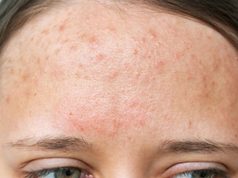Poorer sleep quality linked to lower unsaturated fat intake and higher food weight, added sugar intake
THURSDAY, March 19, 2020 (HealthDay News) — Poor sleep quality is associated with increased food intake and a lower-quality diet among women, according to a study published in the Feb. 18 issue of the Journal of the American Heart Association.
Faris M. Zuraikat, Ph.D., from the Columbia University Irving Medical Center in New York City, and colleagues examined the associations between measures of sleep quality and habitual dietary patterns in a sample of 495 women from a prospective cohort study (ages 20 to 76 years; 61 percent racial/ethnic minority).
The researchers found that higher Pittsburgh Sleep Quality Index scores, indicative of poorer sleep quality, were associated with lower unsaturated fat intake and with higher food weight and intake of added sugars. Compared with women with sleep-onset latency ≤15 minutes, women with sleep-onset latency >60 minutes had higher intakes of food by weight and energy and lower intakes of whole grains. There was also an association noted for greater insomnia severity with higher food weight and energy consumed and lower total and unsaturated fat intakes.
“Given that poor diet quality and overconsumption of energy are established risk factors for the development of obesity and other cardiometabolic diseases, future studies should test whether promoting sleep quality (e.g., through behavioral treatments such as cognitive behavioral therapy) can augment lifestyle interventions to treat and prevent obesity and cardiovascular disease in women,” the authors write.
Copyright © 2020 HealthDay. All rights reserved.








